Skydance’s BEHEMOTH hands-on: Shadow of the Colossus meets Dark Souls
Slaying giants with my headset on is oh so much fun!
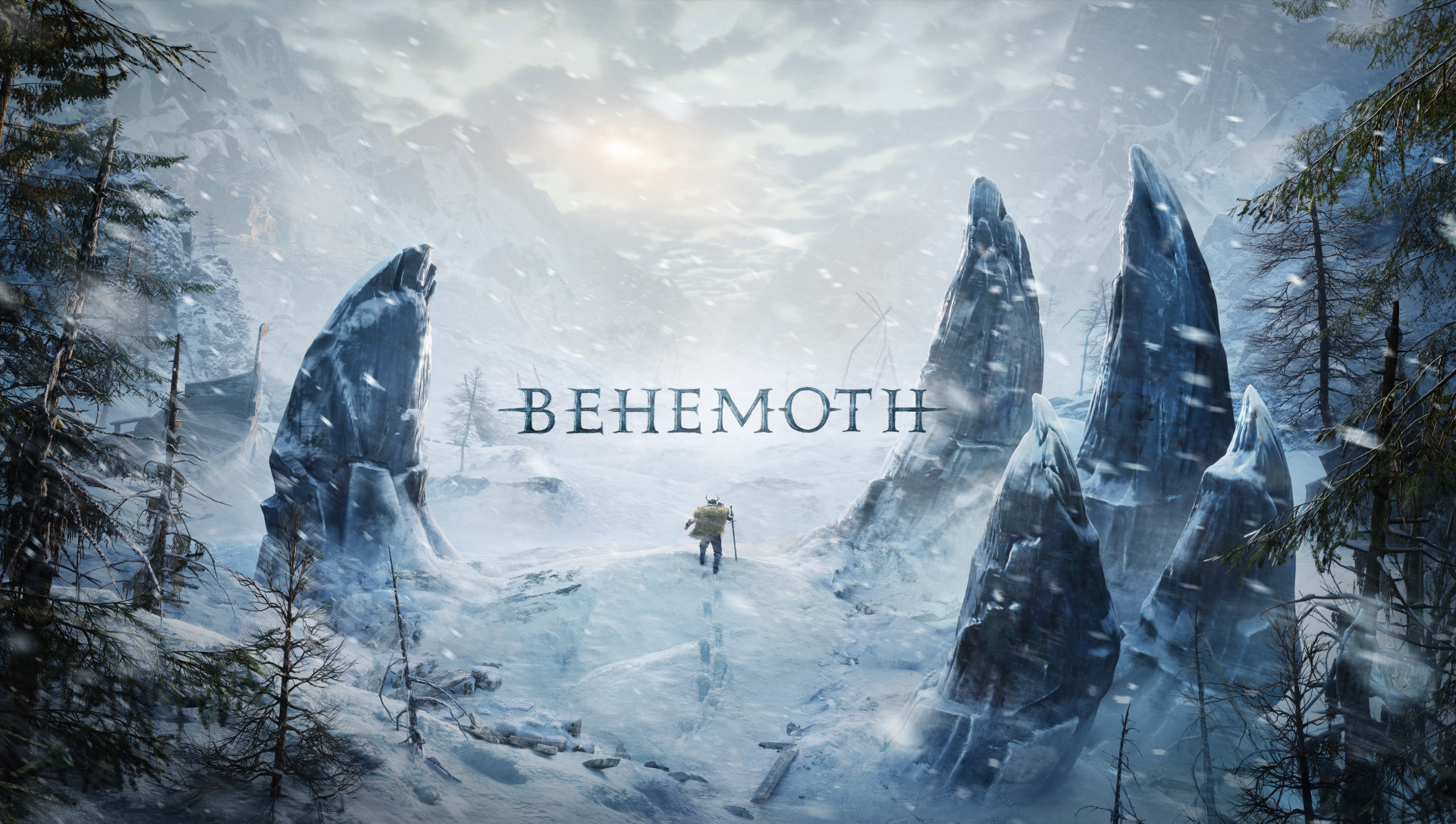
My experience began in a snowy mountainscape as a small avalanche of bricks landed right in front of me. It immediately informed me that I could expect danger around any corner, and even going in with the idea that I thought I knew what I was in for, I never expected to feel the scale that was about to await me.
Skydance’s BEHEMOTH is every bit Shadow of the Colossus as you would expect if you know anything about the game's premise. Climbing a colossus of an enemy is satisfying in a unique way that only such a feat could possess. I only fought one Behemoth in my nearly hour-long demo on PSVR 2 but was told it was the smallest Behemoth in the game — something I didn't quite expect, given that it was as tall as a five-story building.
The game's developer aims to deliver a satisfying action-adventure game, and while it borrows some key mechanics from the team's previous two Walking Dead: Saints & Sinners games, it stands on its own in look and feel.
In fact, while it shares some of the same stamina, health, and weapons physics ideas as those two Walking Dead games, the team had to rebuild everything from scratch because it's developed in Unreal Engine 5. That allowed them to rethink how they want Behemoth to feel instead of just feeling like another Walking Dead game set in a snowy landscape, and boy does it ever seem to deliver.
Action at the forefront
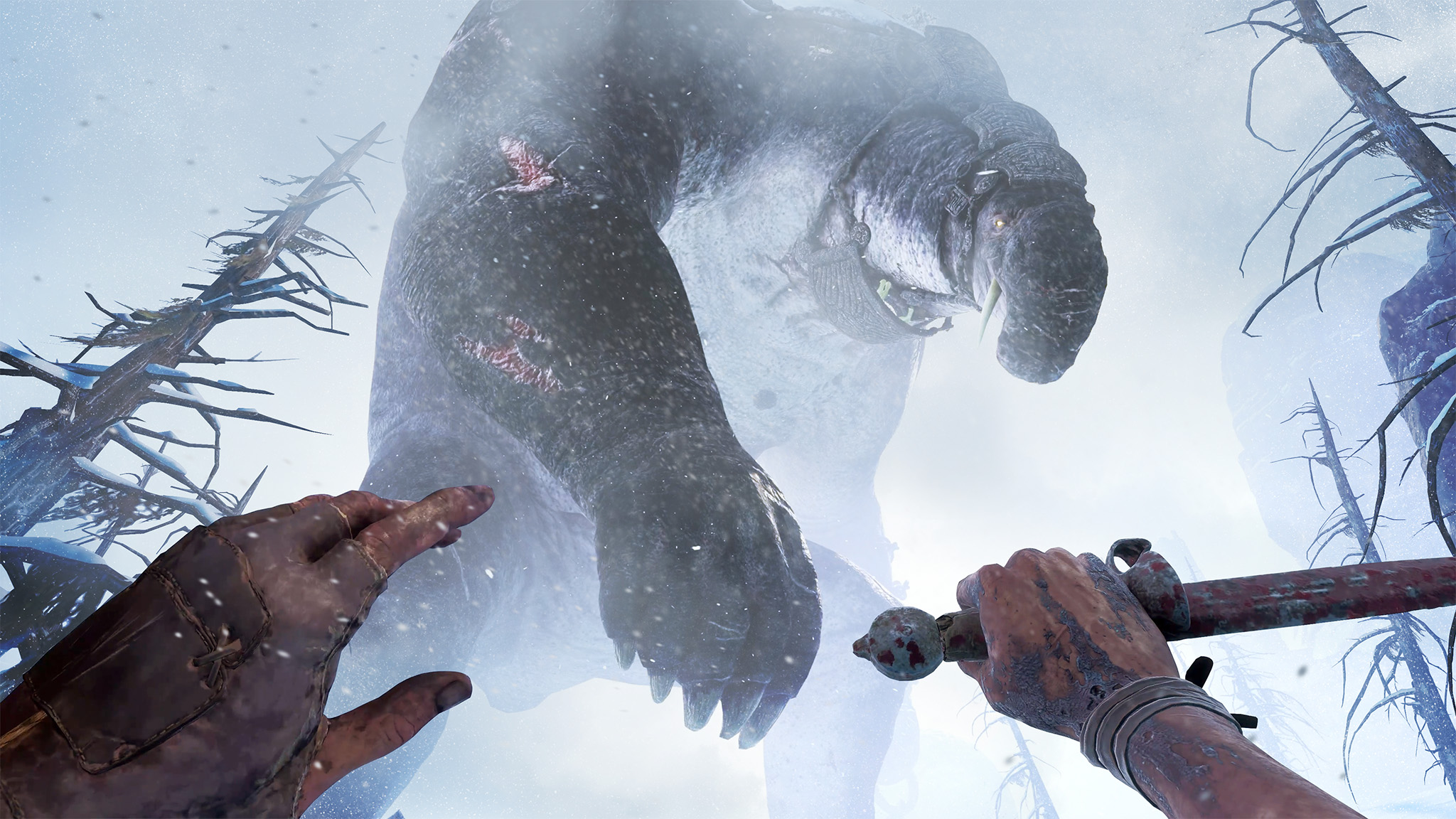
While The Walking Dead S&S games were both survival sandbox titles, Skydance’s BEHEMOTH aims to be a much more straightforward game. Like the team's previous games, levels are visited via a home hub where players can use the experience they've earned to upgrade weapons via skill trees and craft important healing items for missions. Unlike The Walking Dead, however, players shouldn't expect dozens of crafting recipes or a collectathon.
Rather, crafting is devised as a way to use herbs and other scarce small items you'll find along the way, limiting your ability to heal and challenging your strategic skills. You'll find save points along the way through each of the game's twelve levels - each level culminating in a Behemoth to fight - and some of these act as Dark Souls-esque campfire warp points. But there's no weapon durability factor that'll see you breaking weapons during battle or needing to constantly craft new ones.
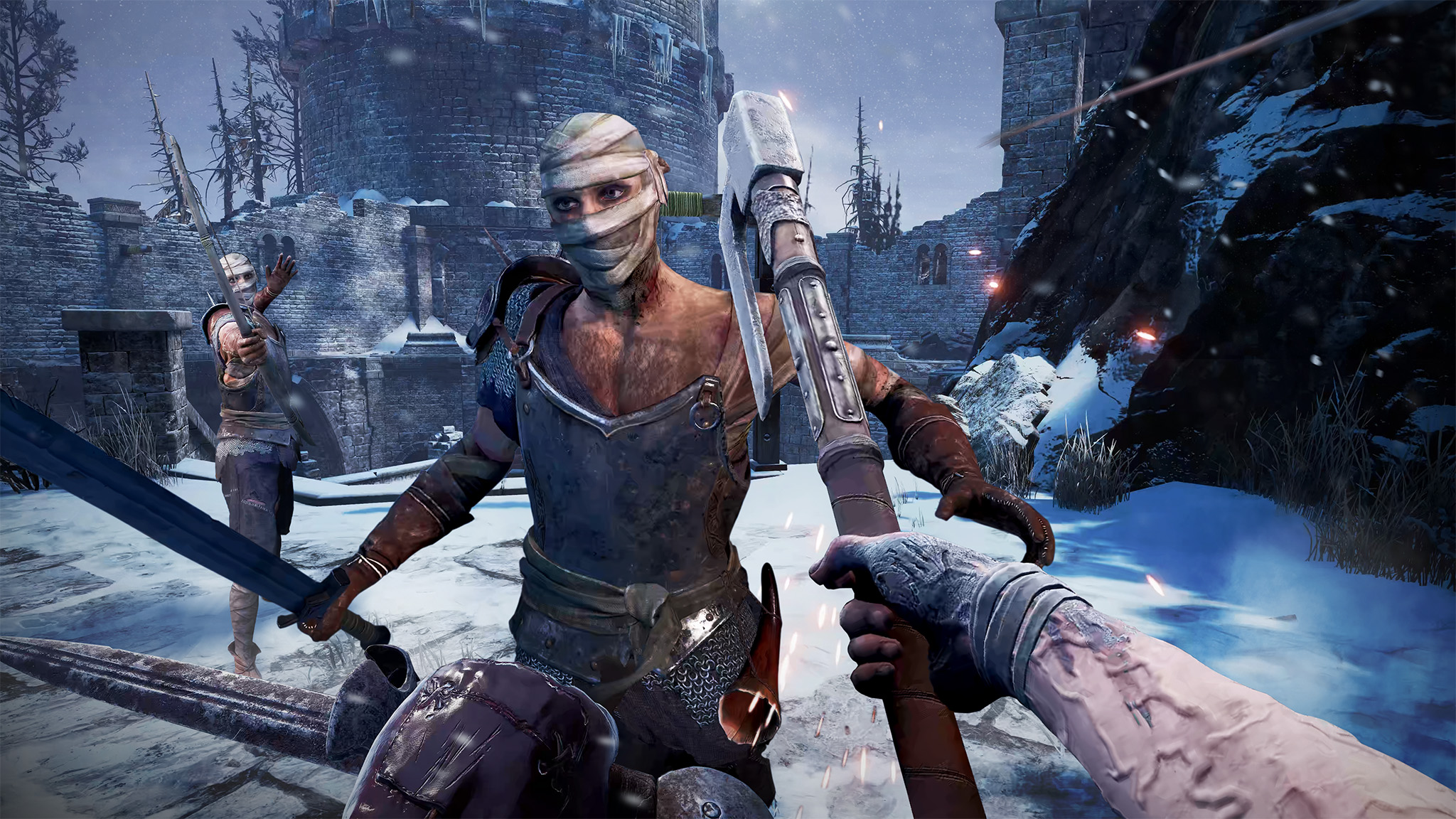
Instead, the game lets you take weapons and shields off any enemy you dispatch along the way, and there are plenty of them to find. There's not even a complicated inventory system like you'll find in TWD S&S. You'll still drop herbs and other collectables into a pouch on your back, but you won't be reaching over your shoulder to check your inventory at any time.
Be an expert in 5 minutes
Get the latest news from Android Central, your trusted companion in the world of Android
Rather, a single slot at the front of your belt will grant you healing items as you need them — so long as you have some in your inventory, of course — and four weapon slots on your body make it easy to quickly swap between your favorites.
During the hands-on, I found it easy to juggle several types of weapons, although I found myself using a bow on the left slot on my back, the hero sword on the right back slot, a shield on the left of my belt, and an axe on the right.
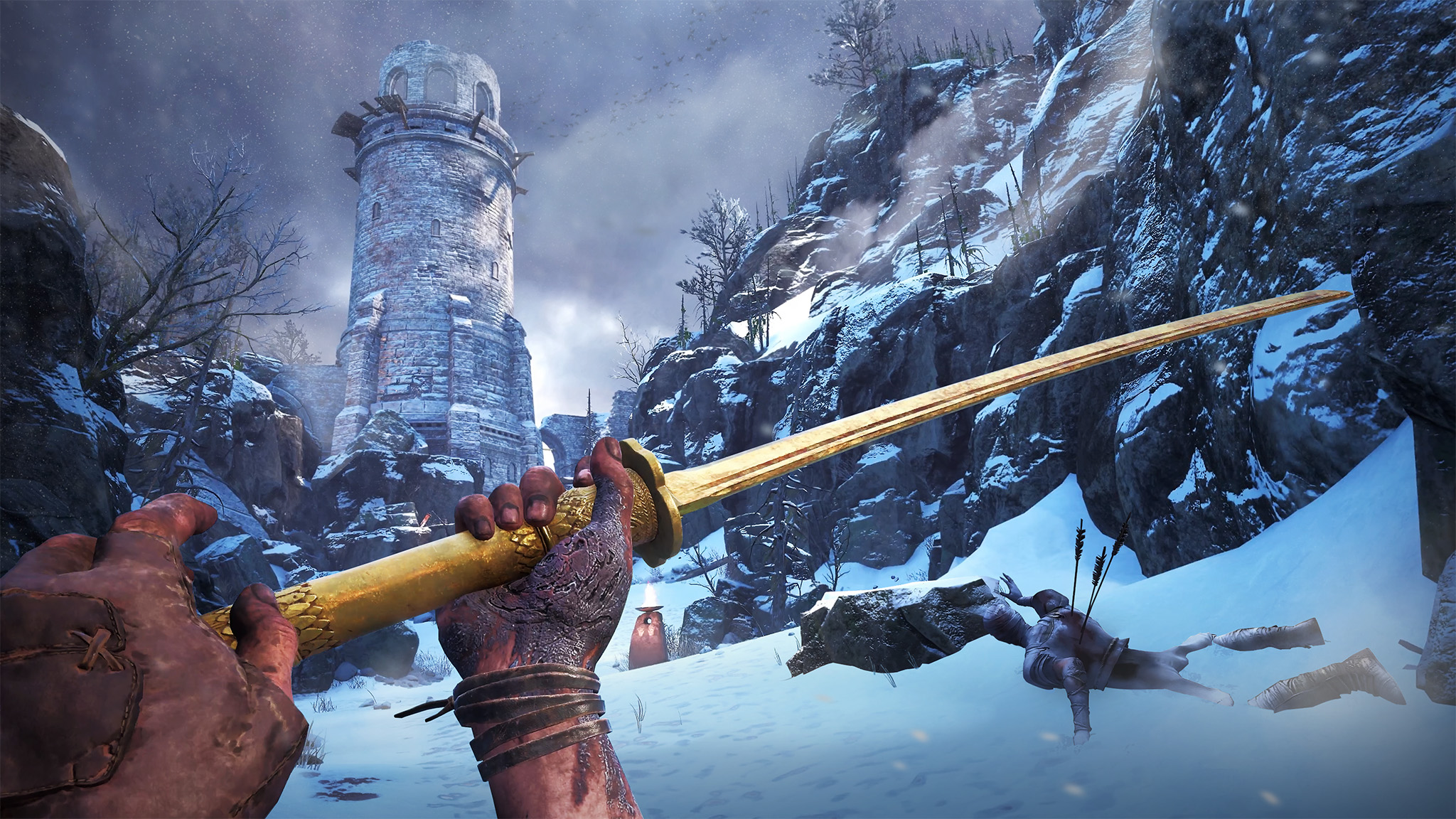
Weapons all have various specializations that come in handy. An axe will shred wooden shields without effort, while a sword might be handy for stabbing into a particularly defense-heavy enemy.
The physics-based combat system felt great, and while it's similar to games like Asgard's Wrath 2 and Until You Fall, I found that it wasn't as obvious with giving you visual cues as some other more hand-holding titles are.
Many combat situations will see you blocking and parrying attacks, but you can also use a variety of environmental hazards to dispatch your foes. All of the traps I found were activated with the grappling hook on your left wrist, which is shot by aiming and pressing the trigger.
Once the grappling hook sinks its teeth into a target, you can grab it and reel it in or yank it in one direction to activate it.
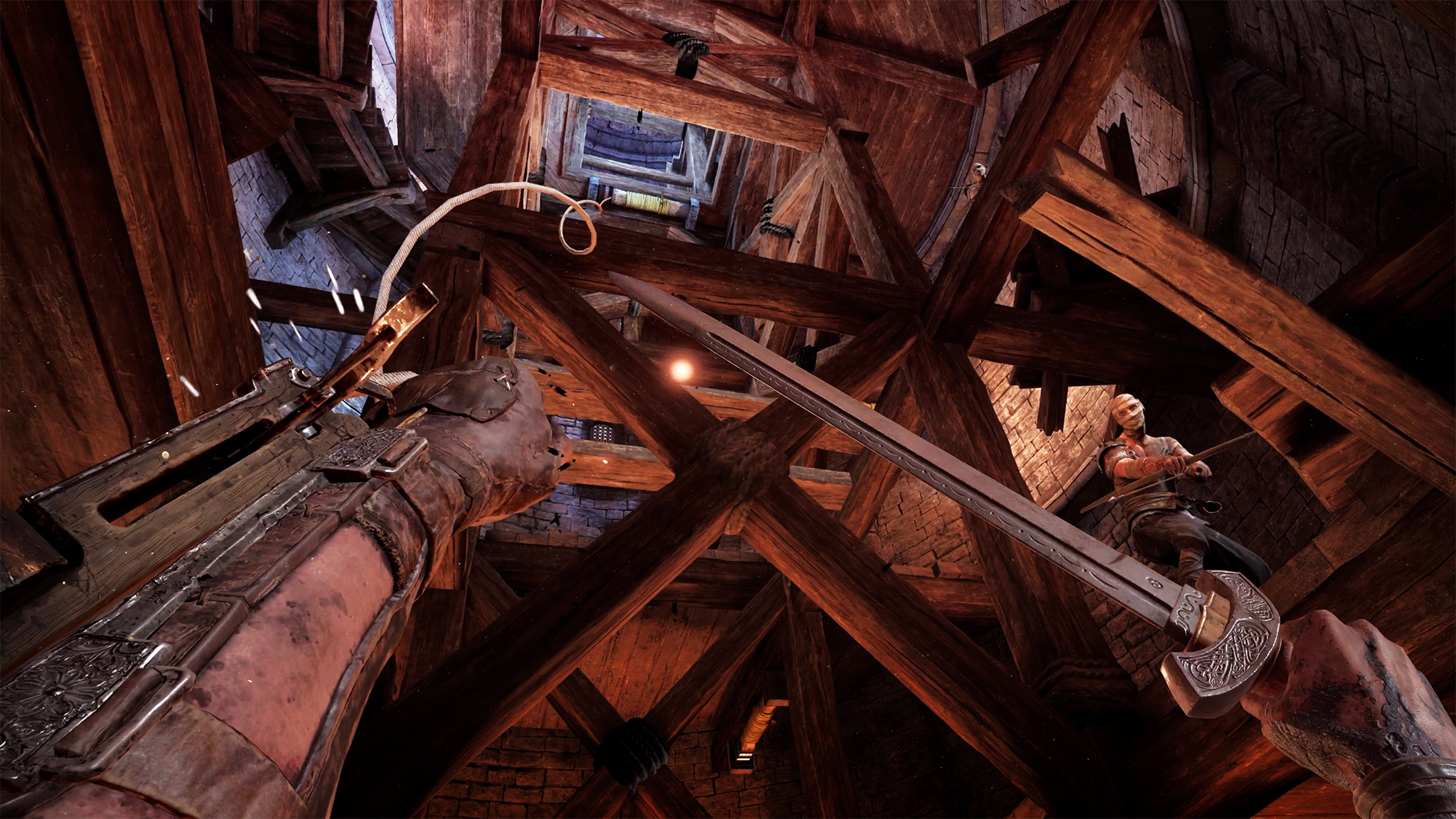
These types of environmental hazards are present throughout the entire level but vary in their scope and style. One trap was a scraggly old tree that I could pull down, and activating your superhuman strength — done by pressing two specific buttons at the same time — will allow you to whip it in any direction you want.
Likewise, activating your superhuman strength will let you cleave enemies in two, either by throwing weapons at them or in melee combat.
The grappling hook also comes in handy for climbing, and just as in Horizon Call of the Mountain, it’s likely you’ll be doing a lot of climbing in this game. Of course, climbing living Behemoths is a little different from just rappelling up the side of a mountain, which is at the heart of what makes the game extra special.
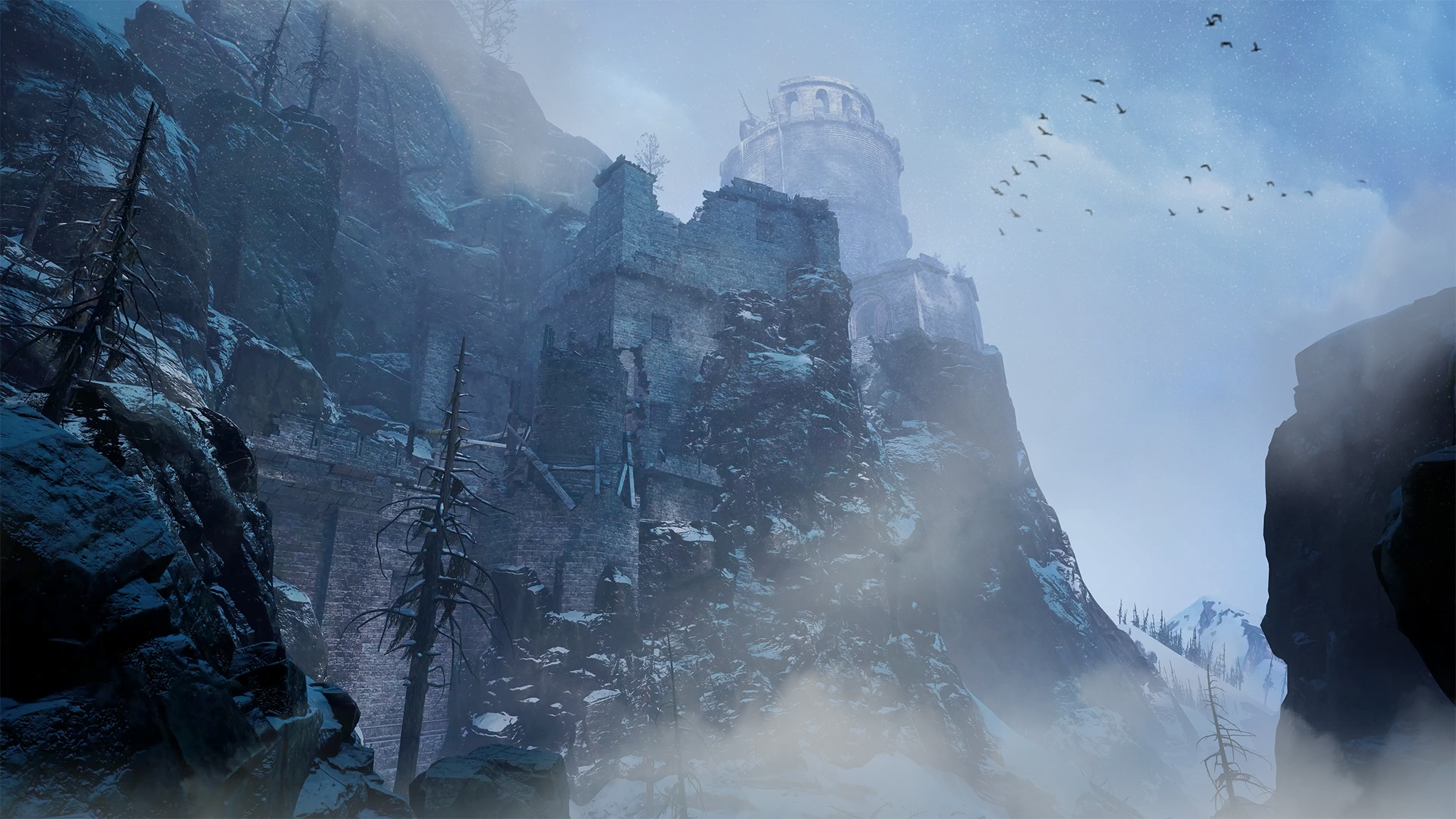
You'll play through the eyes of Wren, a purposefully chosen androgynous name that allows each player to select from a vision of what they might expect the character to look and sound like as they attempt to take on twelve giants - or Behemoths - who have brought a terrible curse to the land.
Surprisingly enough, it's not just your spouse and children or your village mates that are afflicted. Wren is also afflicted by the curse and is fighting against time to rid the land of these Behemoths, as it’s thought that eliminating them will rid the land of the curse.
As I battled my way through the single level I played — one that won’t be in the final game, I’m told — it culminated in fighting the massive Behemoth previously described. While this particular Behemoth didn’t require me to climb its entire mass in order to slay it, there were key times throughout the battle when I was given the opportunity to climb its legs to deal critical damage.
Defeating the Behemoth required me to eventually use an environmental hazard to weaken it enough to climb up to its head, and from there, I could tear out its essence and remove it from existence.
When the final game comes out, defeating Behemoths will give you a boost to your HP, stamina, and other factors, but there’s no specific leveling system to get tangled up in.
Players that enjoy more endless waves of combat can jump into the game’s “Combat Gym” mode that tosses enemies at you in waves, giving you the ability to use each arena’s special traps and weapons to your heart’s content.
Behemoth launches on Meta Quest 2, Meta Quest 3, PSVR 2, and Steam VR later this year at a currently undisclosed price. The game’s lead developer, Skydance Games, told me the team is hoping to add to the world of Behemoth over time, but there are currently no concrete dates for DLC or anything like that.
As it stands, Behemoth looks to be one of the VR behemoths releasing later this year and should give gamers a good excuse to don their VR headsets more often.

You must confirm your public display name before commenting
Please logout and then login again, you will then be prompted to enter your display name.

